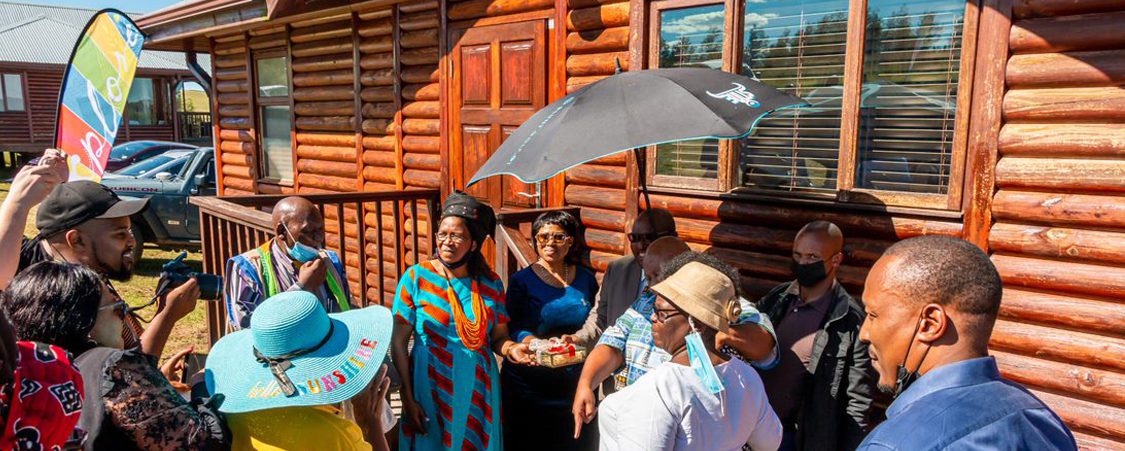The Mthatha Dam resort or Nduli Luchaba Nature Reserve has added two state-of-the-art self-catering chalets to the facility. The one chalet has three bedrooms, a kitchen and lounge while the other has two bedrooms. They were officially handed over by the Eastern Cape Parks and Tourism Agency (ECPTA), together with the KSD municipality mayor, Nyaniso Nelani, to Narita Sankoya, a tourism company led by military veterans, which is responsible for running the resort.
ECPTA’s regional marine and coastal manager, Vuyani Mapiya said the two chalets had cost R16 million to build. The facility, located on the banks of the Mthatha Dam, was officially opened by then Deputy Water and Environmental Affairs Minister Rejoice Mabudafhasi to much fanfare in 2015.
At the time it boasted two conference halls that could accommodate up to 158 people, a boardroom, and restaurant that could cater for 150 people. It was envisaged that it would eventually also have a gymnasium, and boat cruise accommodation units including chalets.
Mapiya said the project had been done in phases, the first phase consisting of the restaurant and conference venue. The chalets were part of the second phase.
“About R20 million was spent on the first phase, but the project has other activities like water sports, campsites and picnic sites that are still to be included. Some activities have not yet been costed, but we are looking at a total investment of up to R60 million or R70 million once everything has been done,” he said.
Even though it is run by a privately owned company, the facility is a partnership between ECPTA, Narita Sankonya and residents of 13 villages in the Ncise Administrative area under Mthatha.
Mapiya revealed one of the primary aims of the project is to ensure rural communities were able to extract economic value from it. It was also meant to contribute to local economic development efforts in the KSD municipality.
One of the operators of the facility from Narita Sankonya, Mzwandile Vena, a former Mkhonto weSizwe freedom fighter, said their responsibility was to train people from the benefitting villages who would be able to run the facility once the concession agreement lapsed. At that point, the company would ease out of the partnerships, allowing the communities to run it themselves.
As operators of the facility that were entrusted with the responsibility of employing as many local youth as possible.
Vena said before Covid-19 their salary bill was about R150 000 a month but they were forced to lay off many of the young people as a result of the pandemic.
“Now it’s like we are starting from scratch, but with the chalets it means we will now be able to employ some of those youth people we lost.”











